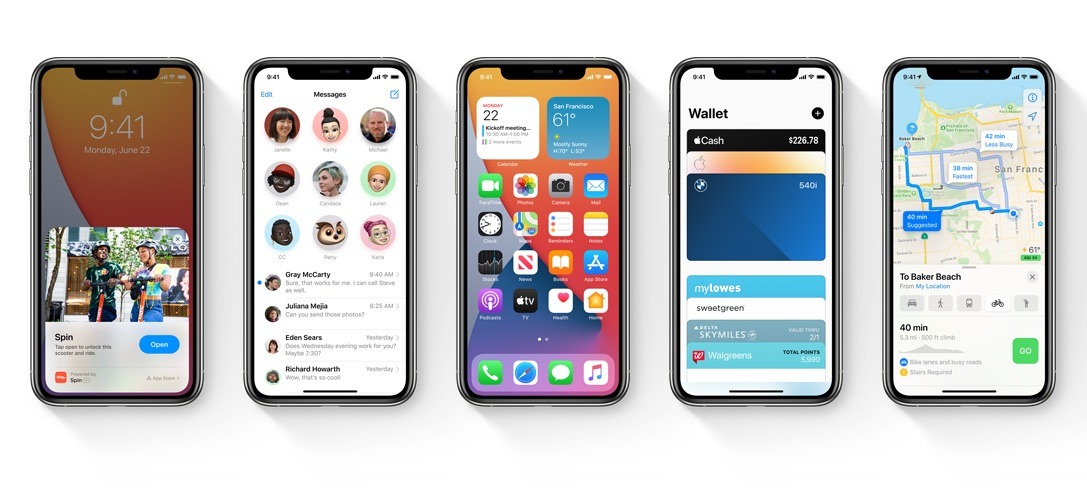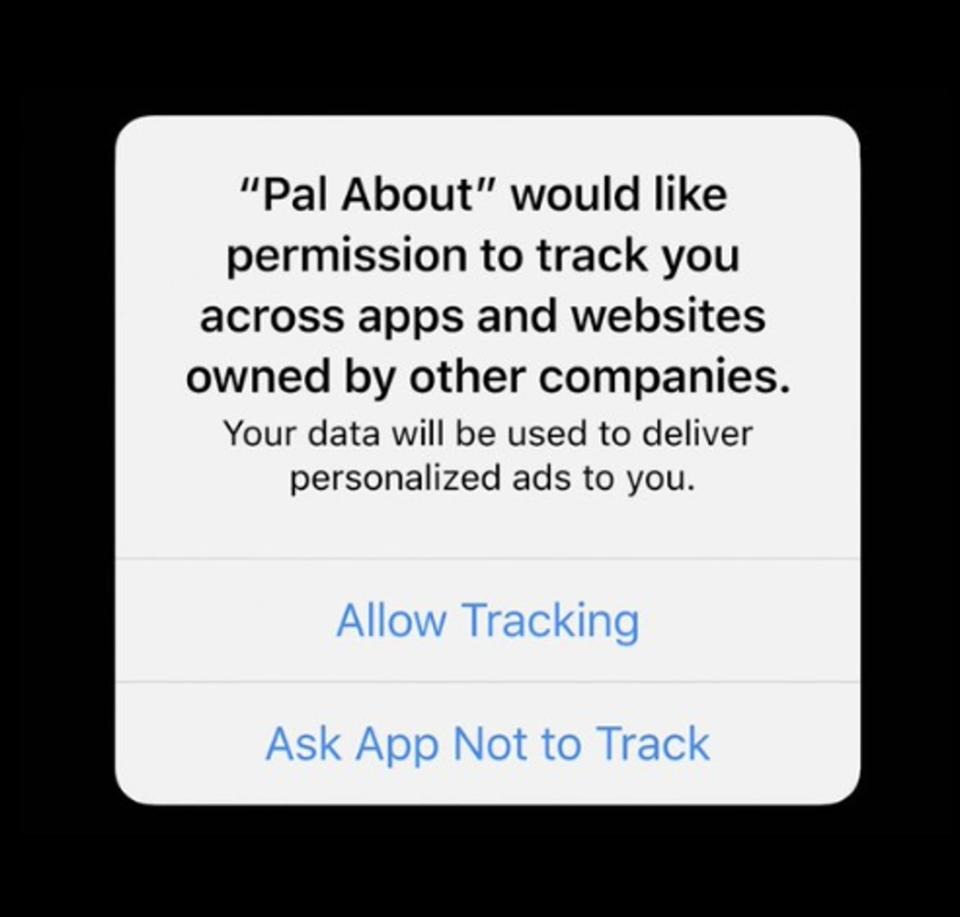Apple is expanding privacy protections in iOS 14 with a tweak to IDFA handling that makes it much more difficult for advertisers to track users.
The feature concerns Identifier for Advertisers (IDFA), a random device identifier tag that Apple assigns to a user's device. Advertisers have long used the feature to track aggregate data without revealing a person's identifiable information.
Apple's iOS 14 makes the IDFA explicitly opt-in for all apps. That means apps will need to ask users permission before they can use the identifier for tracking.
A new popup box asks users if they would like to give permission for an app to "track [them] across apps and websites owned by other companies" to deliver personalized ads. Previously, Apple users had the option to disable the IDFA, though the toggle was buried in the Settings app.
Apple made a related change in iOS 13 to curb location-based tracking by advertisers. Many users stopped apps from tracking their location, suggesting that something similar could happen for aggregate data.
This isn't the only privacy-related change Apple has made in its new batch of software updates. A new Privacy Report feature in the macOS Big Sur version of Safari indicates that Apple is now blocking Google Analytics.
 Mike Peterson
Mike Peterson









 Malcolm Owen
Malcolm Owen
 William Gallagher
William Gallagher

 Wesley Hilliard
Wesley Hilliard



 Christine McKee
Christine McKee




-m.jpg)




2 Comments
Thanks for the news.
It'd be nice to have something clearer than "IDFA" in the title though. I would have understood "Advertising Identifier" much easier.
:-).
Is the "Ask App Not to Track" option enforced, or is it just a request to the app? The article implies that it is, but the option name implies that it's simply a request.